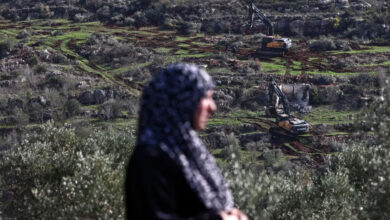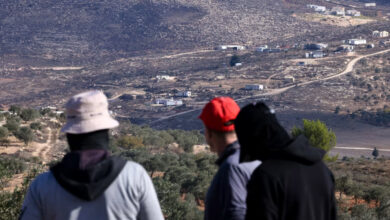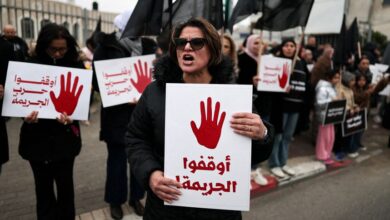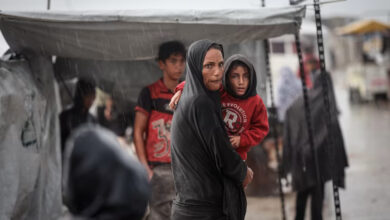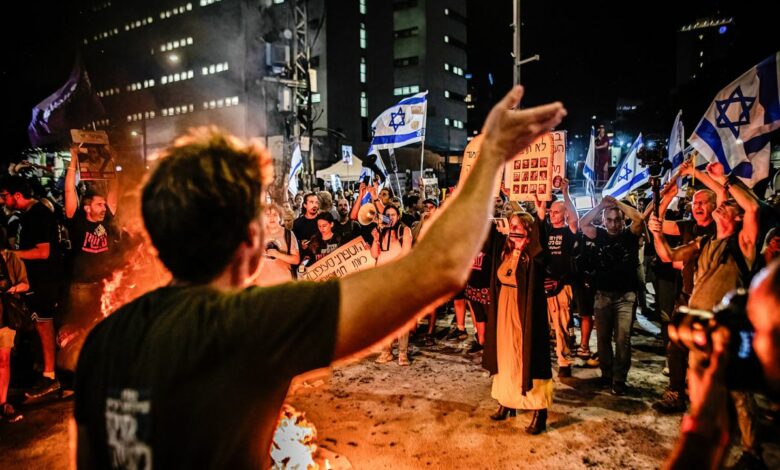
Israeli Prime Minister Benjamin Netanyahu in July effectively spiked a draft hostage and ceasefire deal by introducing a raft of new, 11th-hour demands, according to a report by the Israeli newspaper Yedioth Ahronoth citing a document it obtained.
The report lends credence to charges often leveled at the prime minister – most notably by hostage families – of purposefully prolonging the war and torpedoing deals for his political benefit. Far-right members of Netanyahu’s coalition have pledged to bring down the government should he end the war.
Several news outlets, including CNN, have reported on the late July demands made by Netanyahu, but this is the first time the Israeli document has been obtained in full.
Among the 11th-hour demands, according to the newspaper, was that Israel retain control of the Egypt-Gaza border area – a condition Netanyahu has since portrayed as non-negotiable, including at a press conference on Wednesday.
Yedioth Ahronoth also reported that at least three of six hostages found dead in Gaza by the Israel Defense Forces over the weekend were due for release as part of the May draft agreement – Carmel Gat, Aden Yerushalmi, and Hersh Goldberg-Polin.
The Israeli Prime Minister’s Office in August confirmed to CNN the existence of the document but denied that it added “new conditions to the May 27 proposal.” The statement came in response to a report by the same Israeli correspondent who wrote the Yedioth Ahronoth report, Ronen Bergman, this time in The New York Times.
A senior Israeli official on Wednesday said the new report was “misinformed, misleading and hampers the chance of achieving the release of hostages.”
But separately, an Israeli source familiar with the talks said Netanyahu’s demands were to blame for the deaths of the hostages over the weekend.
“Two months ago, when he (Netanyahu) put the obstacles, he said no to the deal,” the source told CNN. “The hostages died because he insisted.”
The Hostages Families Forum said this weekend that “the finding of the bodies yesterday is a direct result of Netanyahu’s thwarting of the deals.”
On July 25, a senior US Administration official told CNN that negotiators were “closer than we’ve ever been” and that it was “up to the Israelis to accept it.”
The ‘Netanyahu Outline’
Yedioth Ahronoth reported that rather than accepting that proposal, the Israeli negotiators submitted new demands, making changes to the proposals they themselves had originally made.
The new demands were nicknamed the “Netanyahu Outline,” the newspaper reported.
Hamas at the time said that Netanyahu had “returned to the strategy of procrastination, evasion, and avoiding reaching an agreement by setting new conditions and demands.”
Bergman, writing in Hebrew, wrote in Tuesday’s report that among the new demands was that Israeli forces continue to occupy the Egypt-Gaza border area, known as the Philadelphi Corridor, and maintain a 1.4-kilometer perimeter in Gaza along the Israeli border. The newspaper posted maps reportedly from the late-July Israeli response. The original May 27 proposal, according to Yedioth Ahronoth, offered an eventual full Israeli withdrawal from Gaza.

The Israeli source familiar with the talks who spoke to CNN said: “The moment he (Netanyahu) insisted to stay in Rafah, to stay in the Philadelphi corridor, it was very clear that it was an obstacle.”
At Wednesday’s press conference, at which only foreign media were allowed, Netanyahu doubled down on his argument that control of the corridor is central to Israel’s war aims.
“The first war goal was to destroy Hamas’ military and governing capabilities. The second was to free our hostages, and the third was to ensure that Gaza never again poses a threat to Israel. And all three of those goals – all three of them – go through Israel’s control of the Philadelphi corridor,” Netanyahu said in English.
Israel’s prior lack of control of the corridor had allowed Iran to arm Hamas, the prime minister argued, adding, “It’s clear Gaza must be demilitarized, and it can only be demilitarized if the Philadelphi corridor remains under firm control and is not a supply line for armaments and for terror equipment.”
However, he insisted he was still willing to make a deal, saying, “The real obstacle to making a deal is not Israel, and it’s not me. It’s Hamas.”
In a Telegram post Wednesday, Hamas condemned Netanyahu’s refusal to withdraw from the corridor, saying it was an attempt to “thwart reaching an agreement.”
Frustration mounts
Frustration at what many see as Netanyahu’s failure to secure a deal has continued to mount in Israel, with demonstrations on Wednesday marking the fourth straight day of protests since the bodies of the six hostages were found.
Large crowds of protesters gathered outside the homes of members of the Knesset (Israel’s parliament) on Wednesday night to demand a deal be reached, according to the Hostages and Missing Families Forum.
Videos released by the forum show demonstrations in various cities, including Jerusalem and Tel Aviv.
Protests also took place outside the Israel Defense Force’s (IDF) Kirya headquarters in Tel Aviv.
In a sign of the growing hostility toward Netanyahu, the Hostages and Missing Families Forum demanded Wednesday that he stop wearing the yellow ribbon pin, which has become a symbol of support for the hostages.
However, it was clearly visible on the Israeli prime minister’s lapel during the press conference Wednesday – a meeting where CNN’s Jeremy Diamond pressed him to answer the question of a hostage’s wife who wanted to know if her husband, Israeli-American Keith Siegel, would come back alive or dead.
“I spoke to Aviva Siegel tonight… she told me that she believes that you are sentencing her husband Keith to die by prioritizing the Philadelphi Corridor over a deal, and she has this question for you: is Keith going to come home alive or dead?” Diamond asked.
Netanyahu responded, “I’ll do everything to make sure that Keith and all the other hostages come back” – though he did not reply specifically to the alive or dead part of the question.
“I’m telling you that if we relieve the pressure, if we get out of the Philadelphi Corridor, we’re not going to get the hostages back,” the Israeli prime minister continued. “Certainly, we’re going to condemn a lot of them to stay there.”
He went on to say he could “understand the torment of families,” adding that many of the families also did not believe Israel would be able to get hostages released during November’s temporary truce or previous negotiations. “I believe that our strategy is the best way to achieve both goals – both releasing, freeing the hostages and ensuring that Gaza never poses a threat to Israel again.”
Roadblock to a deal
A diplomatic source familiar with the matter told CNN on Wednesday that there would be no ceasefire deal until Israel and Hamas settle the dispute around the deployment of Israeli troops along the Philadelphi corridor.
“Things are very tense. Very much up in the air,” the source said.
David Barnea, the director of Israel’s intelligence agency Mossad, met on Monday with officials from Qatar, which is mediating a deal, but there are “no meetings this week and nothing planned,” the source said.
CNN understands that during his visit to Doha, Barnea insinuated that while troop withdrawal from the Philadelphi corridor in Phase One of a deal is not up for discussion, it may be possible in Phase Two.
In its report on Tuesday, Yedioth said Israeli negotiators in July insisted as part of their new demands on specific guarantees that Palestinian civilians be allowed to return to northern Gaza would not bring weapons with them.
Netanyahu’s team, also for the first time, submitted a list of 40 hostages it wanted released as part of a first phase of a potential agreement, the paper reported. It added that the move was controversial because the Israeli negotiators were themselves determining whom they considered to be “sick,” and thus eligible for release, rather than leaving it vague.
Finally, the newspaper reported that the new Israeli demands said a specific group of long-term Palestinian prisoners to be exchanged for female Israeli soldiers be sent “abroad” after their release, rather than – as the previous agreement reportedly stated – “abroad or into Gaza.”
In its August statement to CNN, the Prime Minister’s Office said that this proposal did “not introduce new terms. To the contrary, it includes essential clarifications to help implement the May 27 proposal.”
Additional reporting from CNN’s Hamdi Alkhshali.

